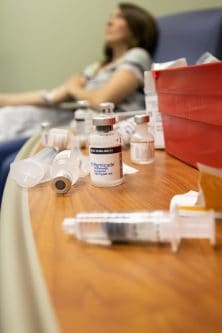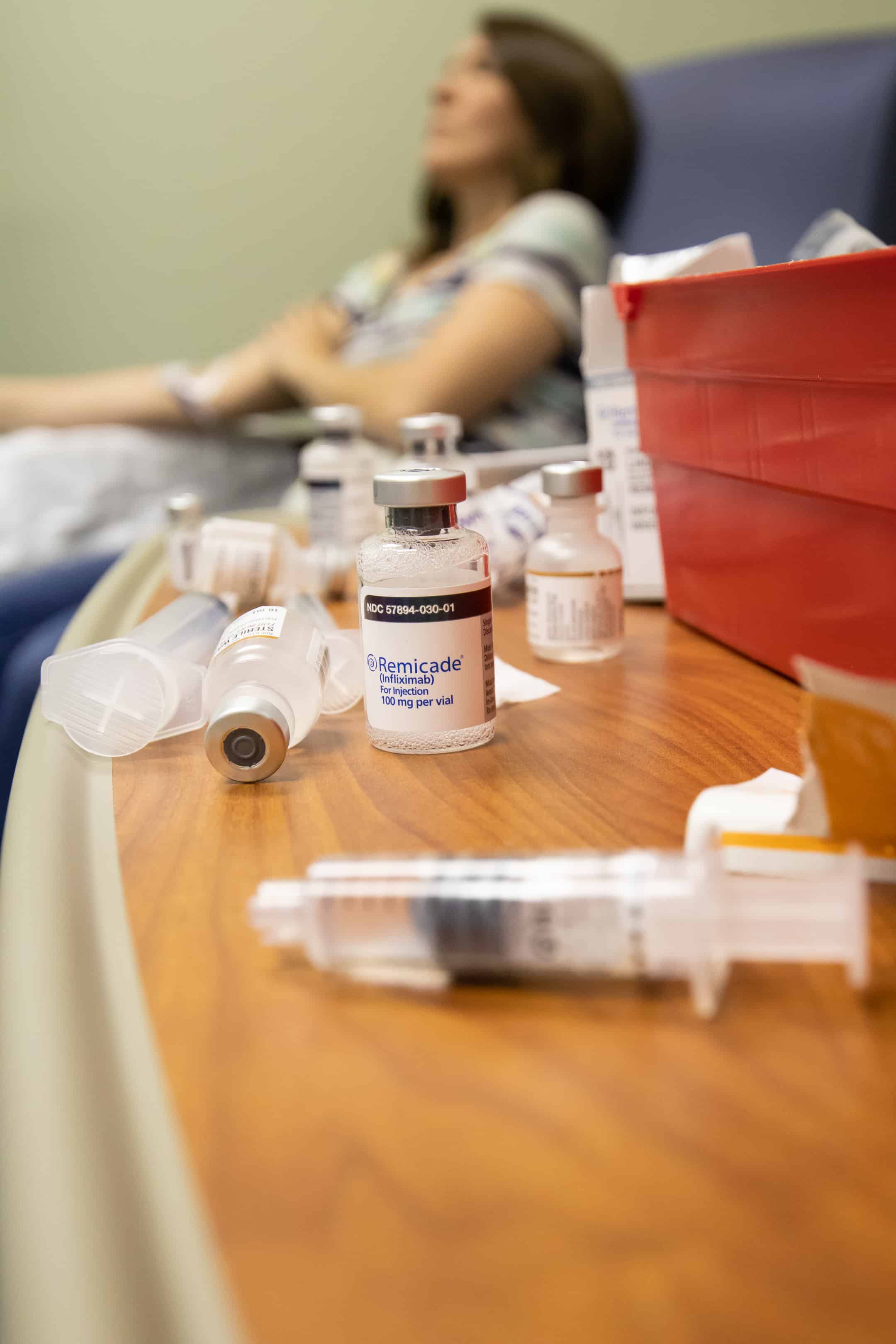Last Updated on December 9, 2021 by Chris and Lindsay
There are a handful of prescription medications, such as Remicade, available for Crohn’s Disease treatment. In the past Lindsay has taken a variety of them. But because Crohn’s Disease impacts each person differently, successful treatment also varies.
Lindsay is currently in remission. Lifestyle factors including diet and stress management certainly contribute to the remission. However, the Crohn’s Disease treatment of Remicade has also helped tremendously.
Crohn’s Disease Treatment
Crohn’s Disease is an illness that impacts people differently. No treatment is a widely-accepted “cure-all” for the disease. In the past Lindsay received Crohn’s Disease treatment of Pentasa, Prednisone, 6-Mercaptopurine, Flagyl and Remicade, among others. However, Remicade is the only medication that showed substantial evidence in treating the disease in her.
Commercials for prescription medications announce side effects of the medications that are often more comprehensive and terrible than the disease itself. Much of this announcement stems from disclaimers to CYA the prescription manufacturers themselves. But there is truth in measuring the value and costs of various Crohn’s Disease treatments.

A patient might pursue natural or medical means to treat their Crohn’s Disease. However each course of action requires a high level of commitment and has its own set of complicating factors.
Lindsay has found that combining dietary principles espoused by Jordan Rubin with the prescription of Remicade has given her the highest quality of life possible at this time. This has made full-time travel possible for her, when there are many reasons she should not be able to live on the road.
Remicade: An Effective Solution
Remicade (infliximab) is an “immunosuppressant” medication (TNF inhibitor) that is designed to reduce the signs and symptoms of Crohn’s Disease. Initially it was developed as chemotherapy treatment for various cancers. However Janssen, the manufacturer, also makes a bold claim that the medicine is able to “maintain remission in adult patients with moderately to severely active Crohn’s disease who haven’t responded well to other therapies.”
This has proven true for Lindsay as she has been in remission the entire time she has received Remicade. But Lindsay has also experienced many of the side-effects of the drug. These include daily struggles with allergens, bacteria and viruses that a normal immune system could fight.

Administering Remicade Across the US
Remicade is administered every 8 weeks through intravenous infusion. The process itself takes approximately 3 hours to complete. Once every year Lindsay must receive a chest X-ray and medical exam by her GI doctor to ensure that she is free of dangerous complications of the disease, such as tuberculosis and pneumonia.
Lindsay receives her infusions as we travel through the United States. This is in coordinated effort of our health insurance (Florida Blue), the prescription provider (CVS Specialty Pharmacy) and the infusion center (Coram).
She received treatments in St. Louis, Spokane and Jacksonville – although we are not certain how this will work out of the country.
However, receiving the infusions has been a blessing for Lindsay’s Crohn’s Disease treatment and has enabled us to pursue a life on the road. We will continue to seek solutions that enable just to live out of our truck camper as we attempt to drive from Alaska to Argentina.
